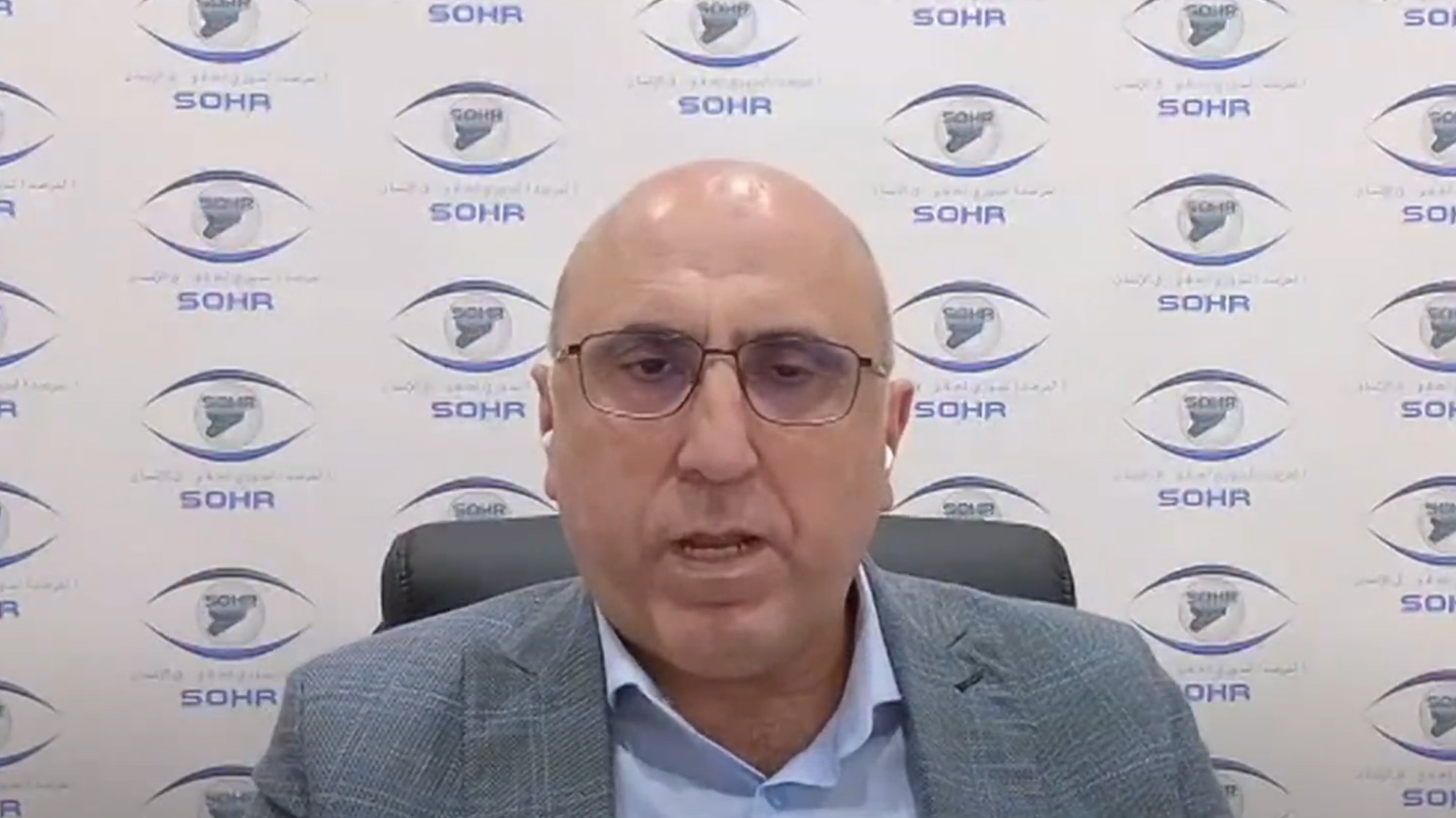SOHR Head: Al- Sharaa implements Assad’s Policies, Ceasefire in Suwayda Merely 'Media Show'
SOHR dismisses Suwayda ceasefire as "media deception," citing ongoing violence and 300+ deaths. With Druze leaders divided and Damascus accused of Assad-era tactics, Syria's crisis deepens amid failed diplomacy and foreign interference.

By Ahora Qadi
ERBIL (Kurdistan24) – Rami Abdulrahman, the Director of the Syrian Observatory for Human Rights (SOHR), expressed deep skepticism on Wednesday regarding the recent ceasefire declared in Suwayda, calling it a “media ceasefire” that does not reflect the reality on the ground. He also accused the new Syrian leadership of continuing the same political trajectory as former President Bashar al-Assad.
No Real Ceasefire, Only Ongoing Conflict and Casualties
In an exclusive interview with Kurdistan 24 on Wednesday, Abdulrahman said the situation in Syria remains far from stable. “Israel continues its strikes, tensions remain unresolved, and Druze leaders are issuing conflicting statements,” he noted.
“There is no unified agreement to accept a ceasefire,” he added, pointing out that Sheikh Hikmat al-Hijri, the spiritual leader of the Druze community, rejected the truce endorsed by Sheikh Yousef Jarbou. “There is now a media war between sides, but on the ground, the violence and losses are very real, particularly among the security forces,” he said.
Accusations Against Damascus and Call for New Political Direction
Abdulrahman held the Syrian government responsible for the escalating crisis and civilian casualties, stating that Damascus has directly created this reality. He emphasized that the ceasefire lacks credibility and warned against accepting it at face value.
Calling on Syria’s transitional President Ahmad Al-Sharaa to adopt a different political posture, Abdulrahman urged him to establish a framework for genuine reconciliation. “We want to see a national agreement that brings resolution—not media statements,” he said.
Dozens of Deaths in Suwayda Confirmed
Citing current statistics, Abdulrahman revealed that since clashes erupted on Sunday, 69 Druze fighters were killed as well as 40 civilians, 27 of whom in "summary executions... by members of the defence and interior ministries".
Also at least, 165 government forces and 18 Bedouin fighters were also killed in the clashes.
The monitor's head further reported 10 members of the government's security forces killed in Israeli strikes in the area.
Federalism, Not Fragmentation: A Way Forward for Syria
While rejecting any calls to divide Syria, Abdulrahman advocated for a federal system. “The Syrian people have no issue with federalism,” he affirmed, stressing the importance of a balanced and inclusive governance structure.
However, he criticized Ahmad Al-Sharaa’s outreach efforts, especially his attempts to engage Syrian Democratic Forces Commander Mazloum Abdi, without proposing a national constitution that includes Kurdish rights. “This is merely a continuation of Bashar al-Assad’s policies,” Abdulrahman stated.
Regional Powers Accused of Self-Interest in Syria
The Observatory director also took aim at international actors, stating that “the Americans, Turks, and Israelis all support their own interests in Syria. None of them truly back the Kurds, the Druze, or the broader Syrian population.”
Regarding Israel’s involvement, Abdulrahman dismissed claims that it aims to control Suwayda. “Israel simply does not want any forces positioned in southern Syria. The narrative about Israeli control over Suwayda is baseless,” he concluded.
As the conflict grinds on and political positions remain entrenched, Abdulrahman’s remarks reflect a broader disillusionment with both regional interference and Syria’s internal leadership.